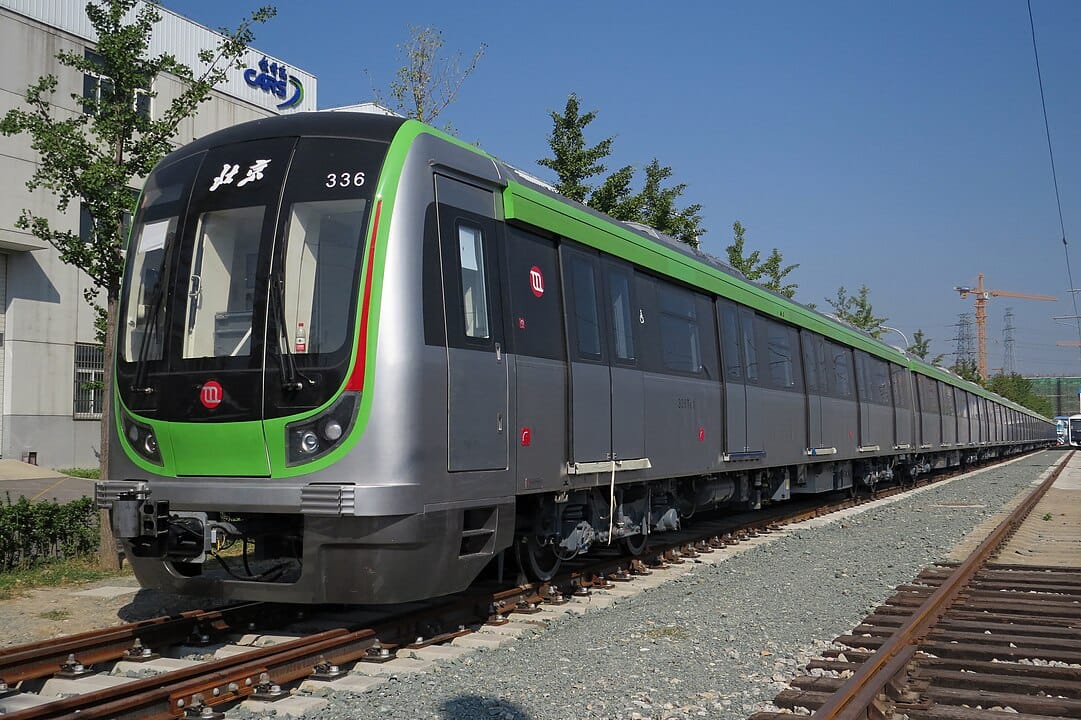EU Launches Foreign Subsidy Probe Into Chinese Rail Company's Bulgaria Deal

The Lede: On Friday, the European Union launched a probe to investigate alleged subsidies provided to the train manufacturer CRRC Qingdao Sifang Locomotive in its bid on a contract for a large locomotive project in Bulgaria. This coincided with the first day of the Munich Security Conference where the U.S. and Europe expressed their continued transatlantic cooperation to the exclusion of China in various aspects.
What We Know:
- The EU’s Commissioner for Internal Market Thierry Breton announced the probe that would determine if the bloc would intervene in the Chinese company’s train contract in Bulgaria. The EU Commission will have a few months to make a final decision on the case by July this summer. This is the EU Commission’s first case under the Foreign Subsidies Regulation, which went into effect in July last year. The measure was designed to stop foreign subsidies from distorting the European single market.
- The Chinese bid of €300 million was 46.7 percent below the cost of €610 million estimated by the Bulgarian railways and 47.5 percent below the price offered by the nearest competitor, the Spanish company Talgo. It included 20 electric trains, staff training, and maintenance over 15 years. Brussels alleges that the Chinese government provided the company with €1.75 billion in subsidies.
The Background: CRRC has been heavily involved in the overland railway links envisioned under China’s Belt and Road Initiative (BRI). As one of Europe’s less developed countries, Bulgaria sought offers from firms to upgrade some of its railway to electric systems. In September, European Commission President Ursula Von der Leyen argued that the flood of cheap electric vehicles (EVs) onto the global markets propped up by excessively generous state subsidies put European carmakers at a severe disadvantage. In a move seen as a retaliatory measure against the EV probe, China opened a trade investigation last month into the price of brandy imported from the EU.
Likely Outcomes:
- With additional instances of the EU and China launching investigations into trade and commerce against each others’ industries, the two sides may be entering a longer term pattern of tit-for-tat regulatory battles, approaching the lines of a trade war. It remains to be seen whether these probes will result in the imposition of tariffs or restrictions, however, the EU continues to express its willingness to exert pressure against China.
- This could be another blow to Beijing’s BRI ambitions in Europe after Italy stepped out of cooperation plans. Although it is an EU country, Bulgaria remains at a distance from the more prosperous Western European dominated bloc and China perhaps had an eye on it as a fringe bid.
- These developments may further sharpen Beijing’s focus on alternatives in Eastern Europe and the Balkans such as with Serbia and Hungary where China has been working on a railway. China’s Foreign Minister Wang Yi met with Serbian President Aleksandar Vučić on the sidelines of the Munich Security Conference and China’s Public Security Minister Wang Xiaohong met with Hungarian Prime Minister Viktor Orban in Budapest last week, where the two countries deepened security ties. These two countries will likely remain a foot in the door for Beijing as the rest of Europe moves away.
Quotables:
“China is concerned that the EU will start to follow the US lead in discriminating against Chinese products and investments. Discrimination will only end up harming the interests of EU companies [in China] and will penalise European consumers. The EU should provide a fair, just and non-discriminatory environment for trade co-operation with China.” - unnamed Chinese official speaking to the Financial Times
"I think you can't say that we're not stepping up against China. We're stepping up against what we see as unfair. It has taken some time to get the foreign subsidies instrument ready and I think we have been absolutely transparent about why we would want it and what should be the use of it. Now we have it and now we have an obligation to use it." - Margrethe Vestager, European Commissioner for Competition
“This legal instrument is meant to guarantee a level playing field for business, and the opening of the in-depth investigation is the first step towards achieving this objective.” Philippe Citroën, director-general of the European Rail Supply Industry Association
“We hope the EU will use the tool of the Foreign Subsidies Regulation prudently, handle specific economic and trade issues through dialogue and consultation, and provide a fair, just and non-discriminatory environment for Chinese companies.” - Mao Ning, spokesperson for the Chinese Foreign Ministry
Good Reads:
EU launches anti-subsidy probe into Chinese train maker (FT)
EU gives warning signal to Chinese trains (Politico)
EU Launches First In-Depth Investigation Under Foreign Subsidies Regulation (Morgan Lewis)
